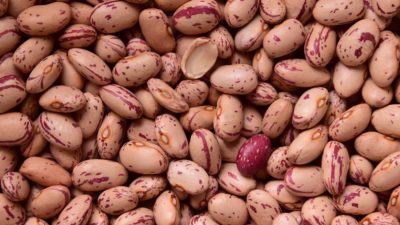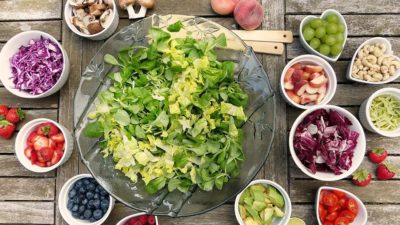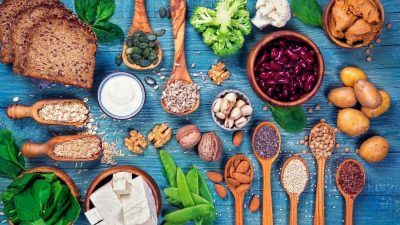Mini factsheet: Protein
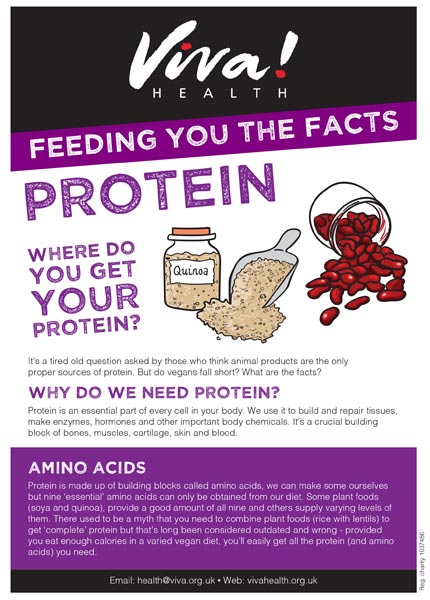
Do vegans get enough protein?
Where do you get yours?
It’s a tired old question asked by those who think animal products are the only proper sources of protein. But do vegans fall short? What are the facts?
Why do we need protein?
Protein is an essential part of every cell in your body. We use it to build and repair tissues, make enzymes, hormones and other important body chemicals. It’s a crucial building block of bones, muscles, cartilage, skin and blood.
Amino acids
Protein is made up of building blocks called amino acids, we can make some ourselves but nine ‘essential’ amino acids can only be obtained from our diet. Some plant foods (soya and quinoa), provide a good amount of all nine and others supply varying levels of them. There used to be a myth that you need to combine plant foods (rice with lentils) to get ‘complete’ protein but that’s long been considered outdated and wrong – provided you eat enough calories in a varied vegan diet, you’ll easily get all the protein (and amino acids) you need.
How much do you need?
On average, men should eat around 55 grams and women 45 grams of protein daily. If you are very active or want to build up your muscles, you may need more. It’s important to ensure that growing children get sufficient protein to help them grow and develop normally. Most people in the UK get more than enough – government surveys show the average daily intake for men is around 85 grams a day and for women 65 grams.
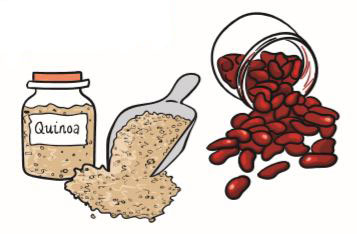
Do you need a supplement?
Unless you’re a professional athlete or do extremely physically demanding work, you won’t need protein powders or supplements.
The best sources
The best sources of protein include pulses (lentils, beans, chickpeas, peas and soya), nuts, seeds and wholegrains (wholemeal bread, oats, wholewheat pasta and brown rice). If you ate toast, hummus and cherry tomatoes, lentil dahl, spinach and brown rice and a baked potato with a vegan frankfurter and baked beans, your protein intake would be 58 grams. Muesli with soya milk and a banana, a falafel and hummus wrap and a tofu stir-fry with mixed seeds adds up to 46 grams. These examples don’t include drinks, soya milk, snacks or fruit.
Faking it
Mock meats made from plant-based protein contain similar levels of protein to their meaty equivalents but unlike meat, they also contain valuable fibre and are not linked to cancer. However, it’s not good to eat lots of processed foods as they tend to contain relatively high levels of fat and salt. Swap meat and dairy foods for a tofu steak, chickpea hummus or a lentil/bean burger.
Animal protein
Research shows that high levels of animal protein (meat, fish, eggs and dairy products) may significantly increase the risk of obesity, heart disease, certain cancers, type 2 diabetes, kidney disease and ultimately the risk of a premature death.
Signs of deficiency
Protein deficiency is very rare in Western societies and usually the result of disease or ageing rather than diet. If you are missing out, symptoms might include: low energy levels, fatigue, poor concentration and trouble learning, loss of muscle and weakened immune system leading to increased infections. If you eat a healthy and varied vegan diet you will be getting plenty of protein.
This post has been categorised in: All Print Materials, Health, Mini factsheets




